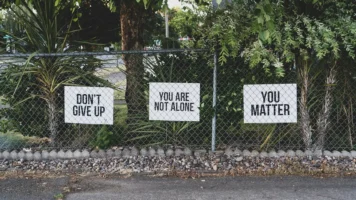During the debate, Senators from across the house joined in proposing amendments which broadly focused on the areas of review processes, child protection, and the pathologisation of trans identities.
Sara Phillips, Chair of Transgender Equality Network Ireland (TENI), said:
“We’re delighted at the range of amendments put forward by Senators to address the deficiencies in the current Bill. These amendments show a will to ensure that this legislation protects the rights and dignity of trans people.”
Gender Recognition Bill 2014: Committee Stage debate
Review Process
Independent Senator Katherine Zappone began the debate by calling for an amendment to be accepted to establish a review process for the Bill. This would give effect to a process whereby the legislation could be monitored over time, and reconsidered if necessary. Senator Zappone argued that this could “ensure that it is in keeping with international human rights standards, and best practice.”
This received wide support from across the house. Sinn Féin Senator David Cullinane stated that “the reason this amendment is being put forward is that a number of us see serious flaws in this legislation, and it will be a chance to get it right.” Fine Gael’s Hildegard Naughton stated her support, claiming that “this legislation truly merits a review.”
Minister Humphreys indicated his intention to accept the principle of this amendment, and assured Members that “there will be an amendment at Report Stage in relation to this.”
Child Protection
The second set of amendments to be considered all related to young people. In particular, the amendments sought to address the absence of a process for young people under 16 to have their gender recognised, and also the onerous processes put in place for young people aged 16 and 17 wishing to be recognised in their preferred gender.
Independent Senator Jillian Van Turnhout was the first to speak and gave an incredibly powerful speech on children’s rights, and the need to have the best interests of the child in mind when considering legislation. She pointed to Ireland’s shocking record in its treatment of vulnerable young people, and stated in no uncertain terms that “this bill fails to vindicate children’s rights” by its outright exclusion of young people under the age of 16.
Again there was cross party support for Senator Van Turnhout’s amendments. Independent Senator Gerard Craughwell offered: “If we pass the flawed version of this Bill, what will those children say about us, and our empathy for their situation.” Fianna Fáil Senator Averil Power said “as it stands we are letting young people down.”
In his response, Minister Humphreys stated that he was not in a position to accept the amendments. Though he said that he was “moved by [Senator Van Turnhout’s] contribution”, he also said that “the bill can’t do everything.”
Pathologisation of Trans Identities
The final set of amendments proposed all related to the medical requirements contained in the Bill.
Once again there was cross party consensus that requiring a medical practitioner to affirm a person’s identity was “pathologisation by any other name”. Labour’s Marie Moloney stated that “I don’t see any logical reason for including this. We are inferring that trans people are ill.”
Independent Senator David Norris pointed out that the situation bore resemblances to the way that homosexuals were once treated, and finished by asserting, “You don’t diagnose health, Minister, you diagnose illness.”
Senator Katherine Zappone also pointed out that the definition of primary treating medical practitioner, if it had to be included, should be expanded to include a person’s general practitioner (GP). She pointed out that GPs would most likely be more familiar with applicants circumstances, and that the range of specialist practitioners in Ireland is incredibly small.
In response, Minister Humphreys said he was not in a position to accept the amendments. He then said that the Government would be putting forward an amendment at a later stage which would remove the term ‘medical evaluation’ from the Bill.
Responding to the Debate
Amnesty International Ireland and Transgender Equality Network Ireland (TENI) today applauded the efforts made by Senators from across Seanad Eireann to propose amendments to address the deficiencies of the current Bill.
“The Government’s reaction to the proposed amendments to the Gender Recognition Bill today is disappointing. As it stands the Bill does not fulfill the requirements of international human rights law, nor does it properly protect the human rights of transgender people,” said Colm O’Gorman, Executive Director of Amnesty International Ireland.
He continued: “The proposed provisions that must be met in order for a 16 or 17 year-old to have her or his gender legally recognised are burdensome and prohibitive. And rather than enforcing a blanket age restriction, a case-by-case approach should be applied towards children, based on their views and best interests. And, requiring a medical ‘certificate’ as evidence that a person is in transition or has transitioned can result not only in the stigmatisation of transgender people, but in the need for diagnostic assessments the person may not wish to undergo and are not medically necessary.”
Sara Phillips, Chair of Transgender Equality Network Ireland (TENI), said today: “This is a critical moment and we need the Government to listen to us. This legislation effects our lives and it’s an opportunity to get it right. Trans people must be listened to. Our voices must be heard. There are serious problems with this Bill, and they simply must be addressed if this legislation is to serve the needs of the very people it is supposed to protect.”
The Committee Stage debate will resume in Seanad Eireann in the coming weeks.




